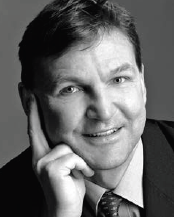The Strict Believers
Hanser Berlin
Berlin 2016
ISBN 978-3-446-25293-6
€ 20.00
Can be ordered from the publisher or from Amazon
Wilfried Buchta, an expert with intimate knowledge of the Islamic world of the Near and Middle East, does not focus so much on the region’s largely failed political and military strategies of the West. The tensions, crises and fateful upheavals that have dominated the region for decades are more important to him. Beginning with the Iranian revolution of 1979, he also shows the destructive role the confession conflicts between Sunnis and Shiites play to this day. He describes the rise of Islamist religious leaders and explains why there is no theologically moderate mainstream that can counteract the extreme positions of the Islamist "strict believers" from the camps of Sunnis and Shiites. Because Buchta makes no secret of how much he values Islamic culture, his sober-minded and realistic analysis is particularly powerful.
Content
Introduction
- From Nationalism to Fundamentalism: The Arab World and the Role of the West
- Enemies Forever? The Schism between Sunnis and Shiites and its Consequences
- Iran's Revolution of 1979 and the Birth of Shiite Fundamentalism
- The Saudi Hydra and the Evil Twins al-Qaida and ISIS
- Islam Without Reformation or: Maintaining Power Before Spiritual Renewal
- The Wars in the Middle East. An Overview
- The Middle East in 2026: A Scenario
Reviews in print and radio media.
18. 12. 2016, SWR2 Manuscript.
"The Strict Believers" is a gripping and illustrating essay. In it, Wilfried Buchta dissects changing power structures and dynamics in the immediate backyard of southern Europe, which is not exactly reassuring. "
Holger Heimann,
14. 10. 2016, Falter (Vienna), No. 41.
“For the Islamic scientist Wilfried Buchta, 1979 marked the beginning of the collapse of the Middle East. That was the year of the Iranian revolution and the occupation of the Great Mosque in Mecca, which energized Shiite and Sunni fundamentalists. As a result, the region split into even smaller groups and proto-states, which offered less and less space for minorities. ... Buchta skillfully identifies the reasons for this development. "
Martina Burtscher,
December 17, 2016, Süddeutsche Zeitung (SZ).
“The fact that Saudi Arabia and Iran, as the leading powers of the Sunnis and Shiites, are the major antipodes in the region today is almost inevitable for Buchta. According to his assessment, the theological differences between the two most important Islamic branches are far greater than the West realizes. ... Dressed up as a question, he suggests that Islam is entirely incompatible with modernization, secularization and democratization. If you look at the current state of most Arab countries, it is not easy to argue otherwise. "
Moritz Behrendt,



